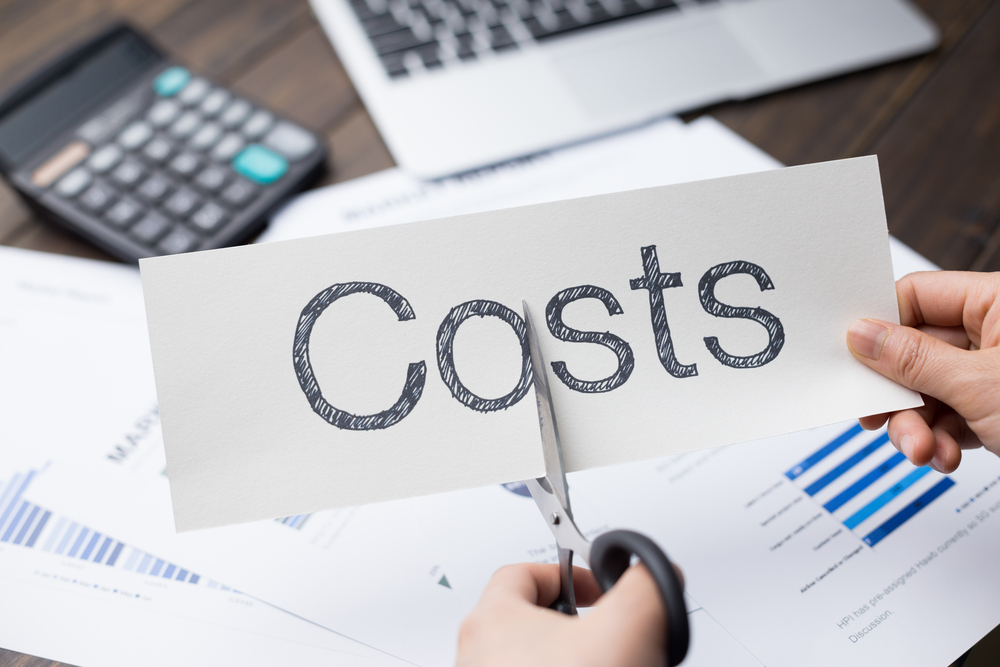So … I’m not sure if you knew this. Apparently, running a business is expensive. And controlling costs can be daunting.
But despite whatever you might see from those gurus who are posing by their Lamborghinis in the Facebook ads … even the leanest Tampa businesses are never 100% profit.
Trust me — I’ve seen it all.
Which is why I wanted to take a moment to write about this for you. It’s honestly a bit of a palate cleanser for me, as we manage So. Much. Paperwork. (And forms.)
Alright … let’s get to the fun stuff (at least for the penny-watching accountant that resides within my soul)…
A Few Winning Tips for Controlling Costs in Tampa Businesses
“You may be disappointed if you fail, but you are doomed if you don’t try.” – Beverly Sill
Depending on the type of business you run, you have a myriad of things you need to pay for to stay in business from rent to office supplies to payroll to inventory (not to mention all those pesky taxes).
When a business is brand new, most business owners go over the top controlling costs. But over time, they tend to loosen their grip on such things and inevitably experience “cost creep.” Sound familiar?
Every dollar you spend on a business expense means one less dollar in profit for your business. So, it’s a good idea to periodically check in on your expenses to make sure you’re controlling costs where needed.
But where do you start?
Looking at your income statement may just give you a headache. Plus, that P&L is a summary of categorized expenses and doesn’t tell the full story about individual costs wracked up throughout the year.
Rather than starting with staring at financial statements or bank records, it might be easier (and less stressful) to consider specific relationships that make your business run.
Start with your suppliers. As a business manager, your job is to make sure you have an adequate inventory of goods to sell or enough supplies on hand to deliver the services you provide. Managing your own supply chain is critical to the success of your Tampa business. Any interruption in that supply chain can have disastrous consequences, kind of like a tiny little boat gumming up the Suez Canal for a week.
And since your supply costs are probably one of your largest expenses, this is a great place to start with controlling costs in your Tampa business.
Ideally, you should spread vendor relationships a little bit, so that you have a diverse supply chain. But, you don’t want to spread the love between too many suppliers because your order volume will end up being too low to receive the best pricing from each vendor. In other words, you don’t want just one single source for all your widgets, but you also don’t want a dozen different suppliers either.
When was the last time you reviewed your suppliers and their pricing? I’d suggest making this an annual exercise.
Ask them questions like:
– How can we get better pricing from you?
– Are there other sizes, colors, styles we can get better pricing on?
– If we order larger quantities at reduced intervals, can we get better pricing?
– Is there a different freight option that will reduce delivery costs?
– Do you offer different payment terms that might save us some money?
Even if you have a great working relationship with vendors, it never hurts to ask these types of questions. The sales reps understand that you’re running a business and controlling costs is a priority, so they won’t get offended when you ask your question.
Take a look at your technology costs. Tech is all around us, so it’s no longer a question of whether or not technology is used in your Tampa business, but rather what tech and to what extent. If your business operation relies on cutting-edge technology, you’re going to have different tech costs than other businesses. Otherwise, there are a variety of helpful ways for controlling costs so they don’t run amok.
Together with your Tampa team and your IT consultant, consider the following:
– Do we need to replace an on-site server with a cloud solution (usually costs less)?
– Are we operating on a series of old, cobbled-together software programs, or do we need to implement a newer all-in-one software solution (more cost-effective and efficient)?
– Are we using automation where we can? Or is there anywhere we can implement modern technology solutions which are capable of high levels of automation (saves time and money)?
– If certain hardware is near the end of its useful life, can we purchase incremental upgrades instead of doing “rip and replace” to control expenditures?
– If currently leasing items such as computers, printers, and copiers, could it be cheaper to purchase this equipment instead? Or vice versa?
– Are there certain basic IT tasks we can train in-house staff on to reduce expensive visits from offsite IT consultants (big savings in the long run)?
Lastly, let’s talk about labor costs. You already know that employees (including sub-contractors) are one of your biggest operating costs.
Controlling costs here can be difficult because emotions get involved. Your employees can quickly feel like family, so making any changes can be difficult. This is a harsh reality that too many Tampa employers have been forced to deal with.
Controlling labor costs isn’t just about wages. There are a host of other costs, such as payroll taxes, health insurance, paid holidays, sick leave, and retirement account contributions. Even if your business doesn’t offer some of these benefits, the reality is that it’s becoming more and more expensive to hire and retain good people. That’s a cost creep you’re definitely going to have to face sooner or later.
Think outside the proverbial box to control labor costs:
– Outsource certain support functions like payroll processing, employee benefits, bookkeeping, and tax matters (we know someone who can help with that).
– Let some staff work from home. This is obviously all the rage right now at gigantic corporations, but it can work for small businesses, too. Employees that work from home report being happier and more productive. For you, it means leasing less office space.
– As the economy opens back up, really ask yourself whether or not you absolutely need to hire more full-time people. Hiring, in and of itself is expensive and time-consuming. Can you train existing staff to do the work instead? Can you use a temp agency for short-term labor on special projects? Can you contract out to another local company? Can you hire a part-time employee and still get a quality person that will do quality work?
– When employees ask for wage increases, consider alternatives to straight hourly or salary rate bumps. Is there a bonus structure you can implement instead? Is there some sort of commission or profit-sharing structure you can create to reward employees when the business is doing better without creating permanent fixed costs?
– If your business is seasonal, consider offering employees short periods of time off at reduced pay. For example, offer a “spring break” week if things really slow down for you this month. This can save on labor costs without forcing good employees to leave, which would ultimately cost you more in the long run to replace them.
Controlling costs is part of running a business. Some expenses are easier to control than others, and some expenses, such as those related to employees, can be downright uncomfortable to face.
We work with all kinds of Tampa businesses and have seen all kinds of out-of-control business expenses.
If you have a strange feeling that controlling costs is something you’ve been struggling with but aren’t exactly sure what’s out of line and what’s not, let’s discuss it.
We’re here to help.
Warmly,
Evelyn Ruiz Olivier
813-510-7783
Wave tax and Financial Services

